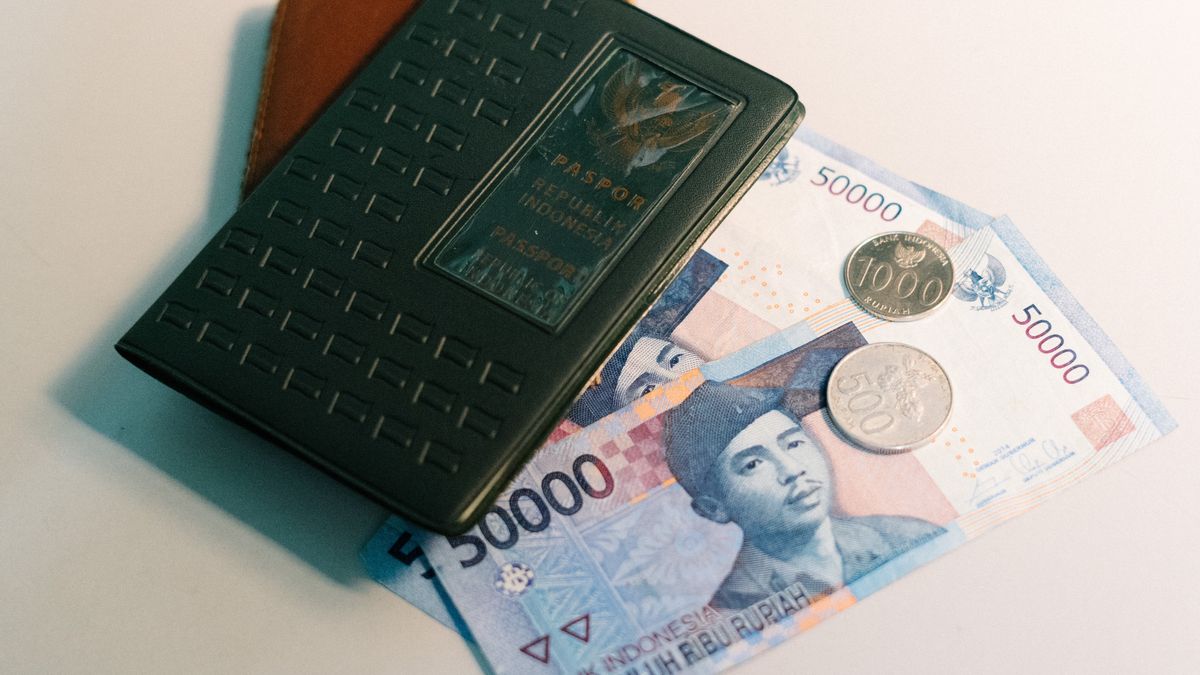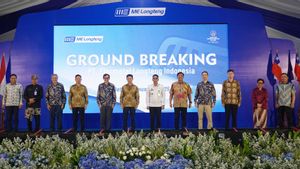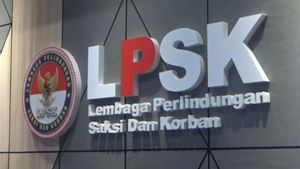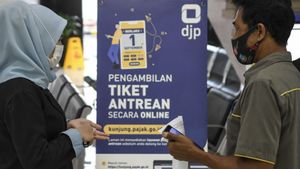JAKARTA - The government announced that religious holiday allowances (THR) in 2021 must be paid D-7 and in full to workers or laborers. The rules are contained in the Circular Letter Number M / 6 / HK.04 / IV / 2021. Meanwhile, for civil servants (PNS), TNI and Polri, the THR disbursement will be accelerated, namely on D-10 Eid.
The government through the Coordinating Minister (Menko) for the Economy Airlangga Hartarto said that the THR payment for these state servants would be carried out no later than one week before Eid Al-Fitr 2021.
Here are five things about the 2021 THR for PNS that need to be known:
1. The budget prepared for the 2021 THRAccording to bureaucratic regulations, THR funds disbursement must be approved by the Minister of Finance (Menkeu) Sri Mulyani. Usually, the Minister of Finance will issue a Minister of Finance Regulation (PMK) on Technical Guidelines for Providing Holiday Allowances.
Although the Minister of Finance himself is currently still finalizing the rules for this year, in fact the THR for PNS, TNI and Polri has been included in the 2021 State Budget (APBN).
Based on the virtual press conference of our APBN held by Minister of Finance Sri Mulyani at the end of last March, it was stated that the payment of civil servants' salaries was included in the personnel expenditure budget which amounted to Rp268 trillion, or 0.8 percent lower than the 2020 allocation.
"This is good because there is control over personnel spending for PNS, TNI and Polri," he said, Tuesday, March 23.
Meanwhile, the THR budget as well as the salaries of the 13 civil servants, military and police are included in the General Allocation Fund (DAU) post, including the regional DAU, which totals Rp390.2 trillion. Although it has not yet been decided how much funds will be disbursed for the THR this year, it is almost certain that the amount will be quite different from last year.
The reason is, in the 2020 THR distribution a number of high-ranking groups must give up the holiday allowance because it is not included in the scheme prepared by the Minister of Finance. Some of them are the president, vice president, members of the DPR and other state officials, as well as officials at echelon 1 and 2 levels.
2. The amount of THRFor the amount of THR for PNS, it is known that it is calculated based on the amount of basic salary received by civil servants and several benefits attached to it. Meanwhile, the amount of the basic salary, according to Government Regulation Number 15 of 2019, is tiered according to class and working period known as class service period (MKG).
The salary calculation from the lowest to the highest is adjusted based on the length of service or MKG ranging from less than 1 year to 27 years.
The following are the salaries of civil servants for groups I to IV:
Group I (elementary and junior high school graduates)
Class He: Rp1,560,800 - Rp2,335,800
Class Ib: Rp1,704,500 - Rp2,472,900
Group Ic: IDR 1,776,600 - IDR 2,577,500
Group Id: IDR 1,851,800 - IDR 2,686,500
Group II (SMP and D-III graduates)
Group IIa: IDR 2,022,200 - IDR 3,373,600
Group IIb: IDR 2,208,400 - IDR 3,516,300
Group IIc: IDR 2,301,800 - IDR 3,665,000
Group IId: IDR 2,399,200 - IDR 3,820,000
Group III (S1 to S3 graduates)
Group IIIa: Rp2,579,400 - Rp4,236,400
Group IIIb: IDR 2,688,500 - IDR 4,415,600
Group IIIc: Rp2,802,300 - Rp4,602,400
Group IIId: IDR 2,920,800 - IDR 4,797,000
Group IV
Group IVa: Rp3,044,300 - Rp5,000,000
Group IVb: IDR 3,173,100 - IDR 5,211,500
Group IVc: IDR 3,307,300 - IDR 5,431,900
Group IVd: IDR 3,447,200 - IDR 5,661,700
Group IVe: Rp3,593,100 - Rp5,901,200
Apart from having a basic salary, civil servants also get inherent allowances, namely performance allowances, child allowances, husband or wife allowances, and food allowances.
Based on the Minister of Finance Regulation Number 32 of 2018, a meal allowance of IDR 35,000 per day for groups I and II; Rp. 37,000 per day for group III; and Rp. 41,000 per day for group IV.
As for the husband or wife allowance, the amount is 5 percent of the basic salary, while the child allowance is set at 2 percent of the basic salary per child, provided that it is a maximum of three children. The amount of the performance allowance (tukin) usually differs according to the type of position and the institution where you work.
3. Time of giving THRThe Coordinating Minister for the Economy, Airlangga Hartarto, ensured that the THR for PNS and TNI and Polri would be disbursed on D-10 before Eid. Currently, the Minister of Finance (Menkeu) Sri Mulyani Indrawati is finalizing this decision
"THR for workers already exists, namely the Minister of Manpower's Circular No. M / 6 / HK.04 / IV / 2021 to be paid in full and no later than H-7," he said, Monday, March 19.
Airlangga said that the THR payment for civil servants was an effort to revive the economy. The payment also follows the Minister of Manpower's decree which obliges all companies to pay THR for their employees in full this year.
4. THR is paid in fullIn accordance with the promise of the Minister of Finance Sri Mulyani Indrawati last year, THR will be paid in full or in full without any deductions. This promise was made by Sri Mulyani because last year the government could not pay the THR as well as the 13th salary to all civil servants because the budget was focused on handling the COVID-19 pandemic.
Last year, the government spent IDR 579.78 trillion for the National Economic Recovery (PEN) program. The funds are allocated for social assistance (bansos), health workers, to corporate assistance and MSMEs.
Referring to the statement of the Coordinating Minister for Airlangga, the disbursement of the Idul Fitri THR for PNS / ASN and TNI / Polri members will be disbursed in early May or one week before religious holidays.
5. There is no significant increase in purchasing powerThe government decided to provide holiday allowances (THR) for PNS, TNI and Polri this year. The disbursement will be carried out on the 10th day before Eid al-Fitr. By providing THR faster than private workers who do the 7 days before Eid, the government hopes that there will be better purchasing power.
Responding to this, the Senior Center of Reform on Economics (CORE) Indonesia Economist Piter Abdullah said that the national economy had not collapsed during the pandemic due to a loss of purchasing power.
"Some of the lower class people, especially those affected by layoffs, have experienced a decrease in purchasing power. But civil servants, military and police are in the upper groups. Thus, their income will not be affected much," he said when contacted by VOI, Tuesday, April 20.
It is true that the THR is given to PNS, TNI and Polri
encourage consumption, but not much. But, said Piter, it will ultimately help the economy survive the pandemic.
Likewise, Executive Director of Indef Tauhid Ahmad said that giving THR to PNS, TNI and Polri did not significantly increase purchasing power. Because the number is only 4 million people.
"It will raise the purchasing power when we add private officers, farmers, fishermen and so on and their numbers are much higher. So even though there is (encouraging purchasing power) it is relatively small," he said.
The English, Chinese, Japanese, Arabic, and French versions are automatically generated by the AI. So there may still be inaccuracies in translating, please always see Indonesian as our main language. (system supported by DigitalSiber.id)













